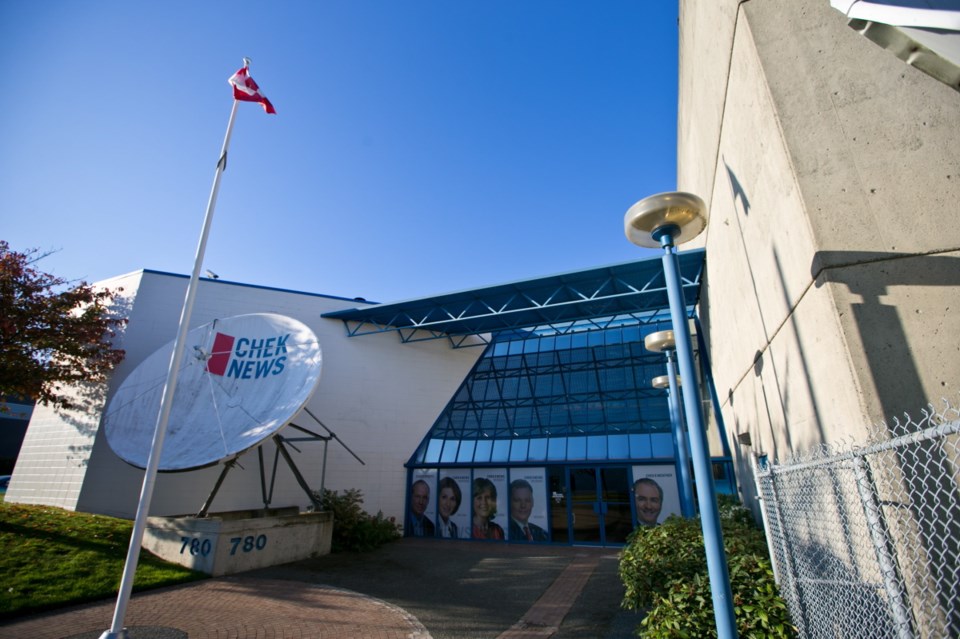Small-market, independent television stations such as Victoria’s CHEK are having money troubles and looking to the federal government for help.
Roy McKenzie, general manager of CHEK, said Monday that the station is making a submission in Ottawa to the CRTC, the Canadian Radio-television and Telecommunications Commission.
“What we are trying to do is make the CRTC understand how important it is for local television stations to provide local news,” said McKenzie.
The CRTC began a national public hearing in Ottawa on Monday on local and community television. It will wrap up on Feb. 3, after which a report will be prepared.
McKenzie said times are difficult for independent operations such as CHEK, as money from national advertisers such as car manufacturers has been declining in recent years. Those advertisers are switching to other media, including digital forms, and spending less money on ads.
That’s especially tough for small independents such as CHEK, which must complete for the national commercials with big, integrated operations such as Roger or Bell Media, owner of CTV stations, he said.
“They don’t leave much on the table for a small, stand-alone television station in Victoria,” said McKenzie.
An official with CTV Vancouver Island declined to comment.
Ian Morrison of the Friends of Canadian Broadcasting said from Toronto that Canada has 23 independent television operators that are essential to their communities, reporting on issues such as civic elections or local pollution that might not be covered otherwise.
“In particular, for those stations that are the only stations in their market, if they fade to black, that means people living there will no longer get professional television news made in their own communities,” said Morrison.
He said his organization will be making a pitch for the CRTC to increase financial support for independent operations as it did years ago with the Local Program Improvement Fund, cancelled in 2014.
That fund, created after the economic shock of 2008, took 1.5 per cent of gross revenues from major satellite and cable broadcasters and distributed it annually to small-community operations.
At its height in 2011, it distributed $106 million to 80 stations across Canada.
Morrison said his group sees no reason why similar assistance programs could not be implemented.
“[The CRTC’s] problem is willpower, not authority,” he said. “They have all the authority they need under the Broadcasting Act.”
Patricia Valladao, spokeswoman for the CRTC, said from Ottawa that the commission is considering a number of options to help independent broadcasters, including the creation of a fund.
But Valladao also said the CRTC hopes to hear from the public about how local television affects and informs them.
“We want to hear from as many Canadians as possible that local television matters to them,” she said.
Anyone who wants to have their say is encouraged to go to crtc.gc.ca to find information and submit comments.



